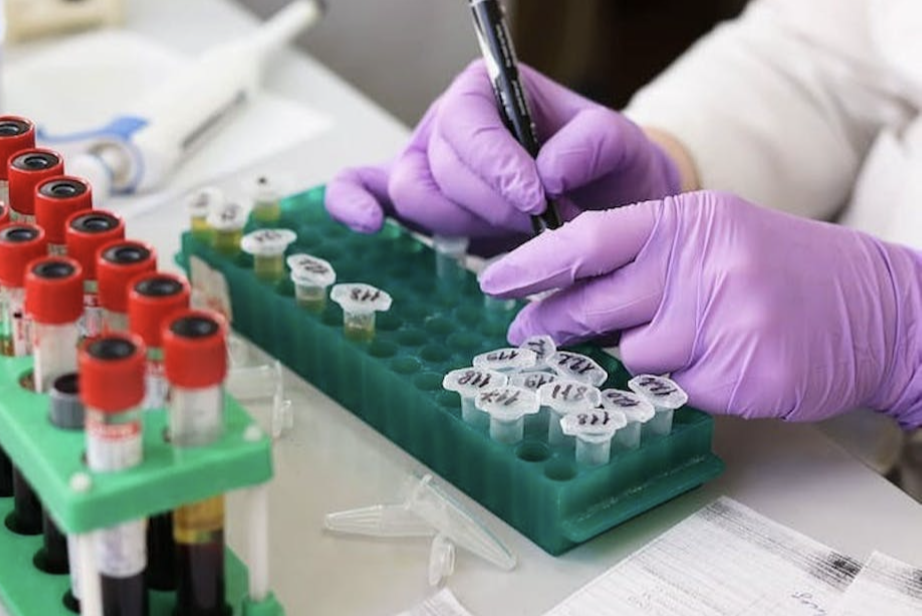AFRICA INC.
– Rising economies, start-ups, and Black wealth, etc.
New Approach Needed As Sickle Cell Disease (SCD) on The Upswing in West Africa

Sub-Saharan Africa has the highest prevalence of sickle cell disease. Wikimedia Common
By Peter Adigwe
Sickle cell disease refers to a group of inherited blood diseases whose symptoms are anemia and blockage of blood vessels. About 80% of sickle cell cases worldwide occur in sub-Saharan Africa. The lack of access to comprehensive health care in the region exacerbates the burden of disease.
Nigeria has the largest population of people with this disease in the world. Reports indicate that about 25% of Nigerians carry the responsible gene and 2-3% of the population suffers from sickle cell disease.
The mortality rate for children ranges from 50 to 80 per cent. Clinical presentations vary from one sickle cell patient to another. Some include leg ulcers, fatigue, dizziness and damage to the terminal organs.
My team and I at Nigeria’s National Institute for Pharmaceutical Research and Development undertook a critical review to investigate the challenges associated with sickle cell disease in sub-Saharan Africa.
We urge governments and relevant stakeholders in this region to prioritize policies that can support effective disease management. We recommend implementing appropriate strategies that will reduce burden while aiming for total elimination. These strategies include counseling on how genetic conditions can affect a family. We offer premarital genotype screening and comprehensive health insurance coverage for all sickle cell patients.
Gaps in care
Our article focused on publications in English-language journals between 2003 and 2021. It has led to a better understanding of relevant medical interventions and identification of prospects for overcoming the burden of sickle cell disease.
We found that most studies in this area have been conducted in West Africa.
Some focused on hydroxyurea in the management of the disease. This medication treats anemia by helping to prevent the formation of sickle-shaped red blood cells. It has helped reduce the global burden of disease. In addition, it has been observed that the drug has strong efficacy and safety in the treatment of children with sickle cell disease.
Niprisan has also been shown to be effective in the management of sickle cell disease. This procedure is classified as phytomedicine, that is, a medicine derived from plants in their original state. Developed by Nigeria’s National Institute of Pharmaceutical Research and Development, it has helped reduce the number of patient hospitalizations.
An analysis of 55 publications showed that access to comprehensive sickle cell disease management was insufficient. Specific interventions such as newborn screening, early diagnosis and preventive therapy with penicillin (an important component of infection prevention in sickle cell disease) were not readily available in countries such as Nigeria and the Democratic Republic of Congo.
The lack of adequate knowledge about sickle cell disease in countries such as Nigeria, the Democratic Republic of Congo and Cameroon has contributed to the high prevalence of the disease. A better informed population will reduce the burden of disease. Similarly, the low priority given to premarital genetic counseling and screening has severely limited its usefulness in preventing the disease. In countries such as Cyprus, Greece and Italy, premarital genetic testing is a common practice. However, in most of the countries studied, many couples were not aware of the existence of genetic counselling. Others did not know the location of the facilities offering this service.
Interventions related to sickle cell disease are costly. They put families at risk financially, with most having to take out loans to pay hospital bills and other health care costs. In Nigeria, for example, the results of a study showed that few participants (7.2%) were enrolled in the national health insurance scheme. Monthly household income ranged from N12,500 (US$27.15) to N330,000 (US$716.64), while health expenditure ranged from N2500 (US$5.43) to N215,000 (US$466.90). Kenya also provides similar examples. Health insurance can be a valuable tool to alleviate the financial burden associated with sickle cell disease management.
Saving lives in West Africa
There is a need to raise public awareness about sickle cell disease. This will correct some negative attitudes and bad practices such as disregard for premarital sickle cell screening, as well as the willingness to marry people with genotypic incompatibility. Campaigns should aim to correct misconceptions that the disease is deadly and contagious.
It is important to know that it is possible to live a long life with proper health care after diagnosis.
Campaigns to improve knowledge and pre-marriage screening and counselling could significantly reduce the prevalence of the disease in West Africa. One idea could be to involve public figures such as musicians, actors and social media celebrities in public awareness campaigns.
Countries with a high disease burden such as Nigeria also need:
- adequate and renovated health facilities
- regular training of health professionals
- comprehensive health insurance coverage for all sickle cell patients
- higher priority and increased investment in research and development.
Given the high prevalence of sickle cell disease in the region, the continent should take the lead in efforts to eradicate the disease. New multidisciplinary programmes for affected populations should be considered. Strategies for disease prevention, reduction, elimination and management must be integrated and pursued with determination.
A new approach must harness political will with science-based interventions. Collaboration with private sector entities, development partners and philanthropists needs to be improved and integrated into strategies. Funding for research and other evidence-based interventions is dismal – resources need to be mobilized in these areas.
Godspower Onavbavba, a researcher at NIPRD, contributed to this report.
Subscribe to Read and Access Exclusive Contents
Join Business executives, political leaders, experts and top professionals in America, Africa and the rest of the Pan-African World who trust and read The African Times USA always.
Newsletter
Subscribe to our bi-weekly newsletter and be the first to Receive New Updates.
Your comments, ideas, and thoughts matter.
Drop us a line: